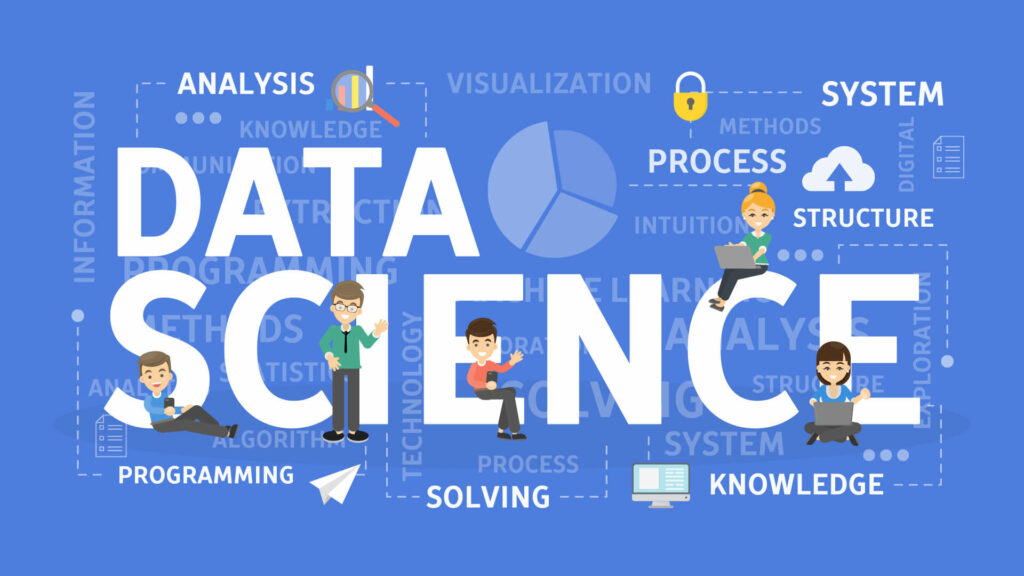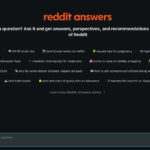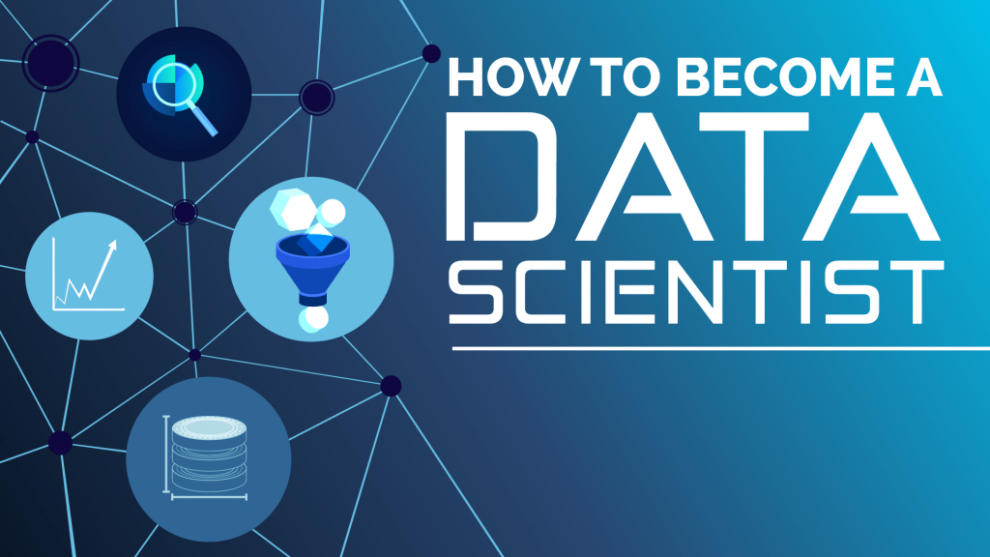Data science is an exciting and rewarding career for analytical thinkers who want to solve complex problems and uncover impactful insights from data. With applications across virtually every industry, the field offers immense potential for innovation and real-world impact.
However, transitioning into data science from an unrelated background can seem intimidating at first glance. You may be wondering:
- What skills do I need to develop to become a qualified data scientist?
- How do I build a portfolio that convinces employers I’m ready for the role?
- What’s the best way to connect with the data science community?
Not to worry – this comprehensive guide breaks down actionable steps for smoothly navigating the transition into a data science career from any field or previous work experience.
Step 1: Honest Self-Assessment of Motivations, Transferable Skills and Interests
Before diving headfirst into intensive technical skill-building, take time to deeply explore your motivations and do an honest self-assessment of your existing abilities that translate well into data science.
Understanding Your Motivations
Start by asking yourself what draws you so strongly towards a career change into data science in the first place. Common motivations include:
- Passion for unveiling hidden insights from complex data sets
- Enthusiasm for building predictive models and machine learning algorithms
- Love of data visualization and the ability to communicate insights through compelling graphics
- Desire to solve tangible real-world problems with data-driven solutions
Getting ultra clear on your underlying motivations and passions will sustain your momentum during the challenging ups and downs of the transition process.
Identifying Transferable Skills
Next, reflect deeply on your current skill set and how it applies to a data science role. You likely already possess many directly relevant strengths without even realizing it. Valuable transferable abilities include:
- Analytical thinking and problem-solving: Breaking down complex problems, understanding root causes, and exploring creative solutions.
- Communication and storytelling: Conveying technical concepts and data-driven insights clearly and compellingly to both technical and non-technical audiences.
- Research and exploration: Diving deeply into unfamiliar domains and self-directed learning of new technical skills.
- Attention to detail: Carefully cleaning, structuring, and validating data for analysis.
- Persistence and grit: Pushing through roadblocks and persevering through challenges to achieve end goals.
- Creativity and outside-the-box thinking: Devising innovative approaches and solutions others may have overlooked.
While not always obvious at first glance, nearly any past professional or academic experience will have strengthened some of these invaluable soft skills that enable data science success.
Choosing an Industry Domain of Interest
An optional but strategic next step is identifying and learning about a specific industry domain that piques your natural curiosity and interests. While data science capabilities have universal relevance across sectors, specializing can help you stand out from the crowd.
Industry verticals experiencing massive growth in demand for data science experts include:
- Healthcare: Improving patient outcomes through data analysis
- Finance: Predictive analytics for investment decisions
- E-commerce: Optimizing sales funnels and ad targeting
- Autonomous vehicles: Powering self-driving car systems
- Social media: Informing strategic decisions on user engagement
Choose a domain that genuinely excites you, then start actively deepening your contextual knowledge through reading industry publications, research papers, and examining relevant datasets.
Step 2: Immersive Skill-Building Bootcamp across Core Data Science Pillars
With a solid self-understanding established, it’s time to embark on an intense skill-building journey across data science’s core technical pillars: programming, statistics, and specialized domain expertise.
Programming Proficiency
Python has become the undisputed programming language of choice for data science due to its versatility, user accessibility, and extensive specialized libraries like Pandas, NumPy and SciKit-Learn.
Dedicate yourself to learning:
- Data ingestion and cleaning techniques
- Exploratory data analysis and manipulation
- Data visualization best practices
- Development of machine learning algorithms
Online courses, coding bootcamps, and platforms like Kaggle offer outstanding resources to build Python fluency through hands-on projects with real-world datasets. Treat coding like a muscle requiring consistent flexing through practical daily practice.
Statistics Savviness
Alongside programming chops, data science utterly relies on statistical concepts like probability, inference, modeling, and algorithms under the hood. Begin by solidifying foundational knowledge of:
- Descriptive vs inferential statistics
- Probability distributions
- Statistical hypothesis testing
- Correlation analysis
- Regression modeling
Free online resources like Khan Academy and Coursera have beginner-friendly courses to establish baseline proficiency. For deeper immersion, explore reputable introductory statistics textbooks and university-level classes.
Domain Expertise
While programming and statistical knowledge provide universal data science foundation, specialized domain expertise gives you a leg up applying your skills to solve industry-specific problems.
Strategically target your learning efforts to build knowledge of the sector that inspires you most. Devour industry reports, academic studies, and articles to understand real-world challenges and data-driven opportunities.
Step 3: Portfolio Showcasing Your Data Prowess to Employers
At this point of skill-building, it’s time to synthesize everything into tangible data science portfolio pieces that grab hiring managers’ attention and demonstrate your abilities to solve real problems with data.
Personal Passion Projects
Start brainstorming ideas for passion projects utilizing public datasets that address topics or issues you genuinely care about. As you ideate, consider potential objectives like:
- Predicting future outcomes with machine learning models
- Segmenting groups with unsupervised clustering algorithms
- Classifying items with natural language processing
- Revealing statistical insights with hypothesis testing
Execute your analysis end-to-end, carefully documenting your methodology in a cleanly formatted notebook. Treat it is a case study highlighting both your analytical thinking process and technical capabilities with code examples and data visualizations.
Kaggle Competitions
Kaggle hosts data science competitions where professionals and amateurs alike develop solutions for real-world problems with provided datasets. It’s fantastic portfolio fodder offering:
- Practical experience with unique datasets requiring creative manipulation
- Opportunities to test your skills against other aspiring data scientists
- Chances to win prizes and recognition for top-scoring solutions
- Additional portfolio pieces and quantifiable achievements to highlight
Open Source Contributions
Actively participating in open source data science communities enables you to:
- Study and learn from experienced professionals
- Get feedback to improve your coding abilities
- Demonstrate your collaboration abilities in a technical setting
- Contribute solutions that benefit real-world projects
Look for open source libraries or tools aligned with your domain interests and explore ways to actively enhance them with your growing expertise, both technically and contextually.

Step 4: Networking with the Data Science Community
Expanding your professional network within the data science community catalyzes skill-building, mentorship, and eventual job prospects. This stage is crucial.
Local Meetups and Conferences
Look up data science related meetup groups in your city facilitating both in-person and virtual events. Attending lets you:
- Chat and connect with fellow data enthusiasts
- Learn cutting-edge techniques and tools from experts
- Gain insights into industry best practices and emerging trends
- Practice articulating your projects and thought process
Likewise, data-focused conferences offer unparalleled access to leaders across the field while expanding your professional network exponentially.
Online Forums and Groups
Join online communities like DataQuest Forum and Reddit’s Machine Learning channel enabling conversations with fellow practitioners worldwide. Engage daily by:
- Asking questions when stuck on coding or analysis issues
- Sharing your data projects and portfolio for constructive feedback
- Joining insightful discussions across technical and conceptual topics
You’ll sharpen your skills while connecting with potential mentors, collaborators and allies supporting your learning journey.
LinkedIn Relationship Building
LinkedIn provides exceptional data science networking possibilities through:
- Following industry thought leaders and content creators
- Joining niche LinkedIn groups aligned to your interests
- Commenting on posts and engaging in specialized forum discussions
Additionally, view every connection as a potential mentor. Reach out for informational interviews to hear their data science journey stories and request advice tailored to your specific background and goals.
Step 5: Ace the Data Science Job Hunt
With a polished portfolio demonstrating your capabilities, passion project case studies under your belt, and an expansive professional network, you’re equipped to confidently apply for data science roles suited to your experience level.
Carefully target positions requiring skill sets aligning closely with your current abilities while moving decisively towards your big picture career goals.
Customized Resumes and Cover Letters
Remember, every data science resume and cover letter should be tailored and customized to each job listing to convince the specific employer your background makes you an exceptional fit for that particular role.
Your materials should emphasize:
- Technical abilities directly matching key job requirements
- Domain expertise relevant to the company’s industry
- Soft skills enabling data science success like analytical thinking
- Concise achievement summaries demonstrating measurable impact
Interview Confidence Through Practice
Prepare for a wide range of common data science interview question types assessing both technical competence and soft skills like communication abilities. Some examples:
- Technical: “Walk me through your process data cleaning and exploratory analysis of this sample dataset to determine features worthy of model inclusion.”
- Behavioral: “Tell me about a time you overcame a major analytical roadblock. What successes and challenges did you face?”
- Role Fit: “What about our company’s mission resonates with you and why are you interested in this specific team/role?”
Practice articulating your process out loud while utilizing a whiteboard to demonstrate key points. Prepare illustrative examples of past experiences overcoming data science challenges.
Continuous Learning Mindset is Key
Remember, the ever-evolving landscape of data science means continuous learning and growth is imperative even after landing your first role. Commit to actively deepening both your technical and specialized domain expertise throughout your career by:
- Reading the latest academic studies and industry reports
- Attending conferences and networking events
- Learning new data visualization and analytical tools
- Pushing beyond your coding comfort zones into new libraries
- Staying on top of machine learning and AI advancements
Additional recommendations to accelerate your data science journey:
- Pursue a Master’s degree focusing on data science
- Enroll in an intensive data science bootcamp
- Consider mentorship or 1:1 coaching
By taking the right steps for targeted skill-building, showcasing your evolving capabilities through portfolio projects, expanding your professional network, and staying relentlessly dedicated to continual growth, you are destined for an exciting and fulfilling data science career helping solve impactful real-world problems with data.
















Add Comment